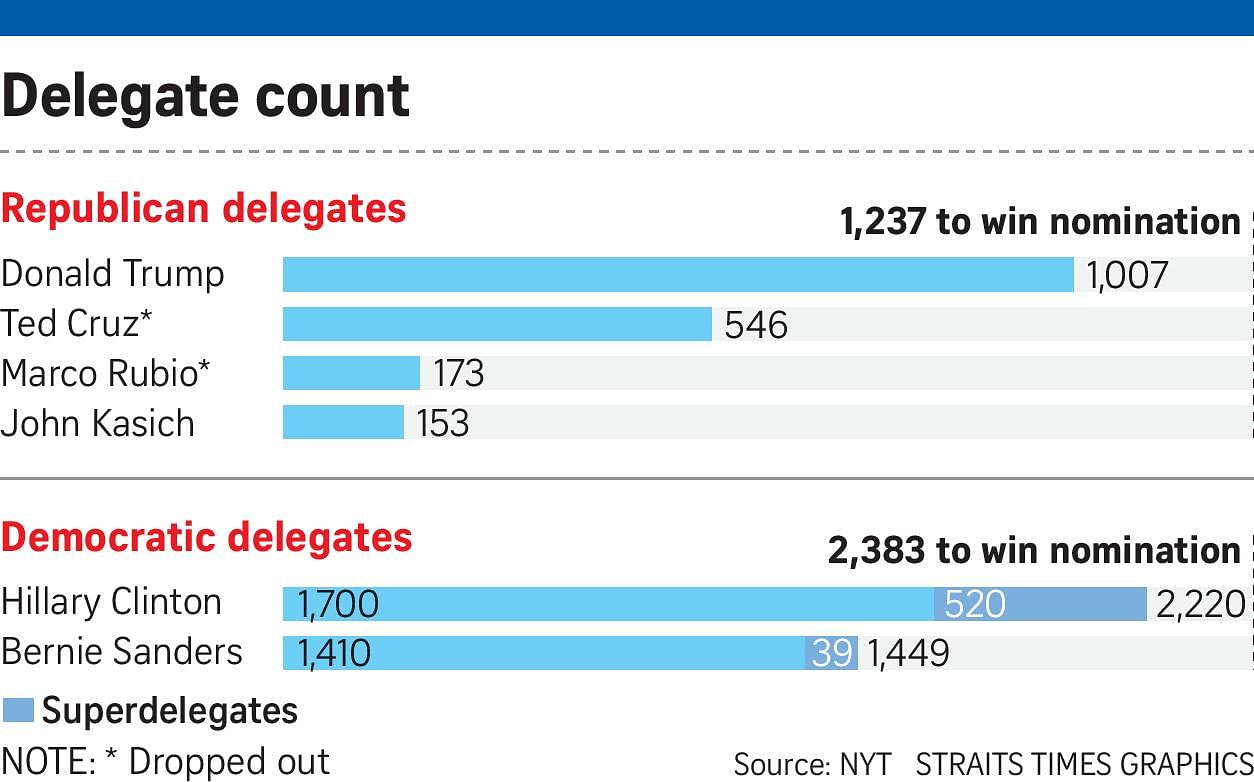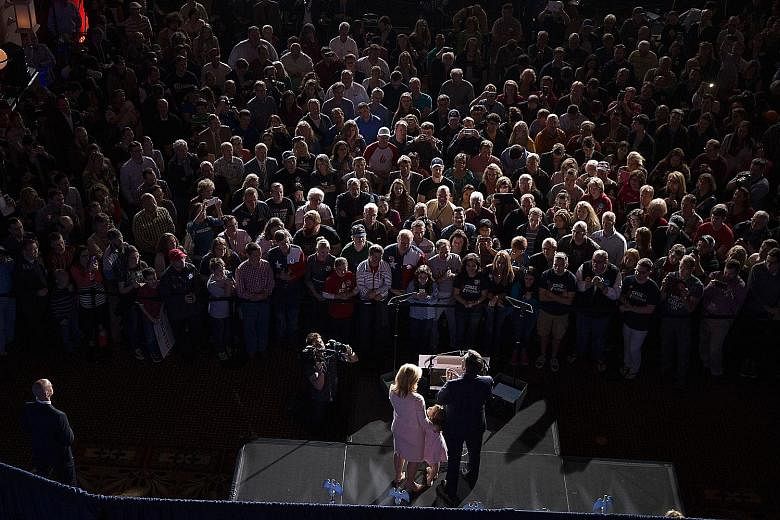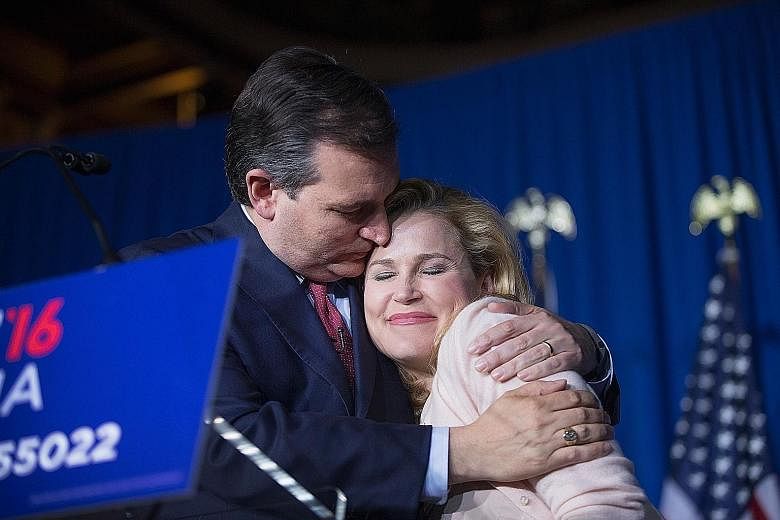Republican Party leaders are in a bind over whether to rally behind Mr Donald Trump after he emerged as the presumptive nominee of the party, given the fact that many of them have spent months resisting the rise of the controversial tycoon.
Mr Trump's path to the nomination was cleared on Tuesday after a decisive victory in Indiana that forced his closest rival, Senator Ted Cruz, to leave the race.
Mr Cruz lost the state, which many considered his last best chance to halt Mr Trump, by double digits, leaving no serious viable pathway for him to win the nomination.
Mr Trump still needs to win the 1,237 delegates required to officially secure the nomination, but it is now considered a formality given that his only remaining challenger is Ohio Governor John Kasich, a candidate who has won only a single contest in the entire election cycle so far - and in his own state.
The immediate reaction from party insiders was split between acceptance and revolt.
Republican National Committee chairman Reince Priebus led calls for the party to unite against Democratic front runner Hillary Clinton.

He wrote on Twitter that Mr Trump would be the presumptive party nominee, and added: "We all need to unite and focus on defeating Hillary Clinton."
It was a message later echoed by Mr Trump during an uncharacteristically restrained victory speech in Trump Tower. Not once did he repeat the "Lyin' Ted" nickname he gave his rival or complain about the "rigged" election process. Instead, he praised Mr Cruz for being tough and Mr Priebus for doing a good job.
He said: "People who have said the worst things about me… they are calling us and they say they would love to get on the train, the Trump train."
Indeed, some coalescing has already begun with Republicans like Mr Ari Fleischer, the White House press secretary under former president George W. Bush, agreeing that stopping Mrs Clinton should be the primary motivating factor.
"There's a lot about Donald Trump that I don't like, but I'll vote for Trump over Hillary any day," he said.
But there were many who remain adamantly against Mr Trump's nomination. "If we nominate Trump, we will get destroyed... and we deserve it," Senator Lindsey Graham tweeted just before the results of the Indiana primary.
Mr Mark Salter, a former top aide to Senator John McCain, went further and told MSNBC he would be voting for Mrs Clinton.
"(Mr Trump's) policy views are like some drunk's rant," he said. "If he tried to do anything like he says he will, we'd have no allies, a lot more enemies, and more of them with nukes."
Mr Cruz's concession speech was also indicative of how difficult it will be to achieve unity for the party. He did not mention Mr Trump's name once in his speech, preferring to focus on thanking his supporters.
At the heart of the dilemma for Republican leaders is the question of whether supporting Mr Trump will be an asset or a liability in their own re-election campaigns.
Democrats running against Republicans in left-leaning states clearly believe that Mr Trump's nomination will damage the conservative brand and were busy trying to pin their opponents to the new party flag-bearer.
Ms Maggie Hassan, a Democrat challenging Republican Senator Kelly Ayotte in New Hampshire, released a statement on Tuesday meant to tie the two together.
"Kelly Ayotte has repeatedly said that she'll put her political party first by supporting Donald Trump if he is the nominee, and now it is time for Ayotte to just do what she's been preparing to do for weeks and make her support for Trump official," she said.
Analysts expect more such tactics to follow, even as Republicans mull over their next move.
Mr Nate Silver, the statistician behind election forecasting site FiveThirtyEight.com, said that he expected many, especially those Republicans running for re-election in Democratic party-leaning states, to sit on the sidelines for now.
"In some ways, the lack of a contested convention makes it easier for them," he wrote. "There's nothing compelling them to endorse Trump or endorse #NeverTrump - they can just stay silent on him and see how things develop."


